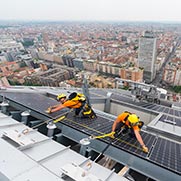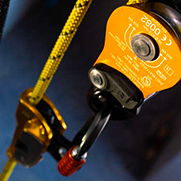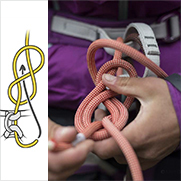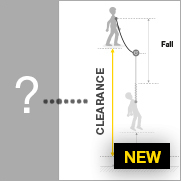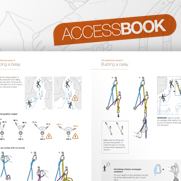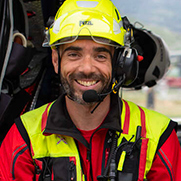Release and rescue of a co-worker suspended on a static support.
After a fall on an energy-absorbing lanyard, on a positioning lanyard or close to the anchor on a rope, the victim's weight has little effect on the support. Rescue maneuvers are relatively simple.
Warnings
- Carefully read the Instructions for Use used in this technical advice before consulting the advice itself. You must have already read and understood the information in the Instructions for Use to be able to understand this supplementary information.
- Mastering these techniques requires specific training. Work with a professional to confirm your ability to perform these techniques safely and independently before attempting them unsupervised.
- We provide examples of techniques related to your activity. There may be others that we do not describe here.
Case n° 1.1:
- Victim suspended on a static support.
(e.g. energy-absorbing lanyard torn in a fall).
- Victim in good health; no need for accompaniment.
- Evacuation path is clear and direct.
Follow the recommendations in your I'D's Instructions for Use for lowering with the device on an anchor.
Case n° 1.2:
- Victim suspended on a static support.
(e.g. energy-absorbing lanyard torn in a fall).
- Victim needs accompaniment.
Follow the recommendations in the chapter on Accompanied descent with the I'D.
More complex rescue situation: victim suspended on an elastic support, such as a long rope.
- If the victim fell on a long length of rope (more than about 20 m), there is significant rope stretch due to the victim's weight. The rescuer's actions must take into account the effects of elasticity at the moment the victim is released from the rope.
See the chapter on Release and rescue of a co-worker suspended on a long rope.


